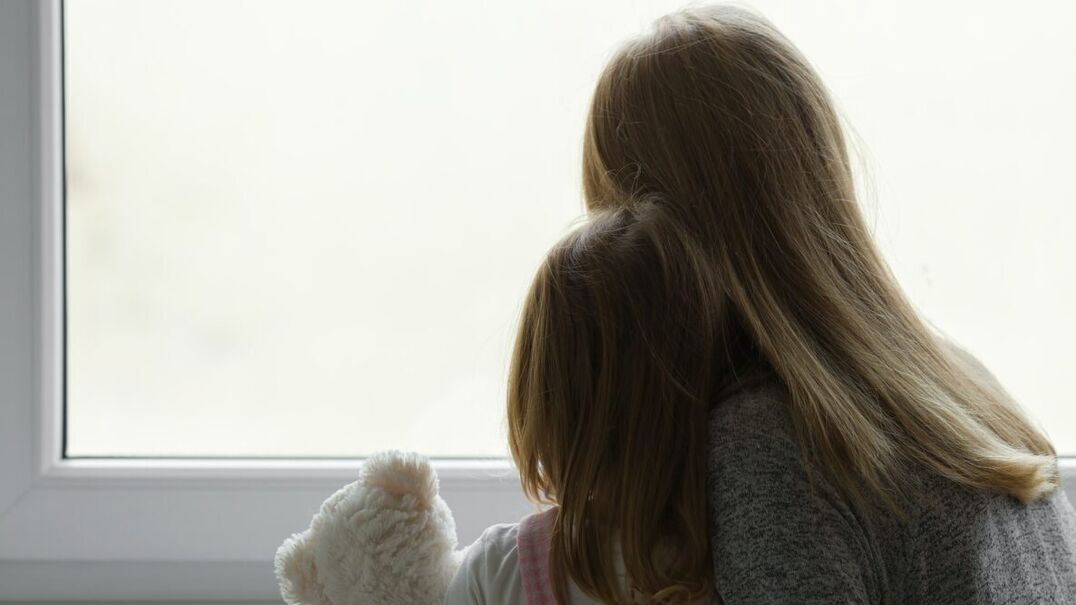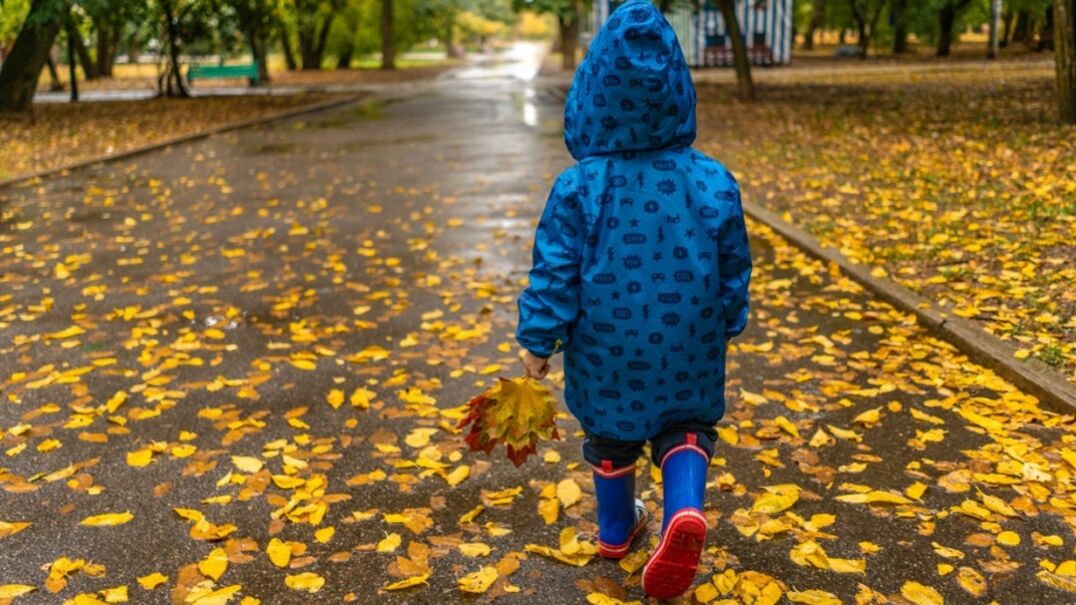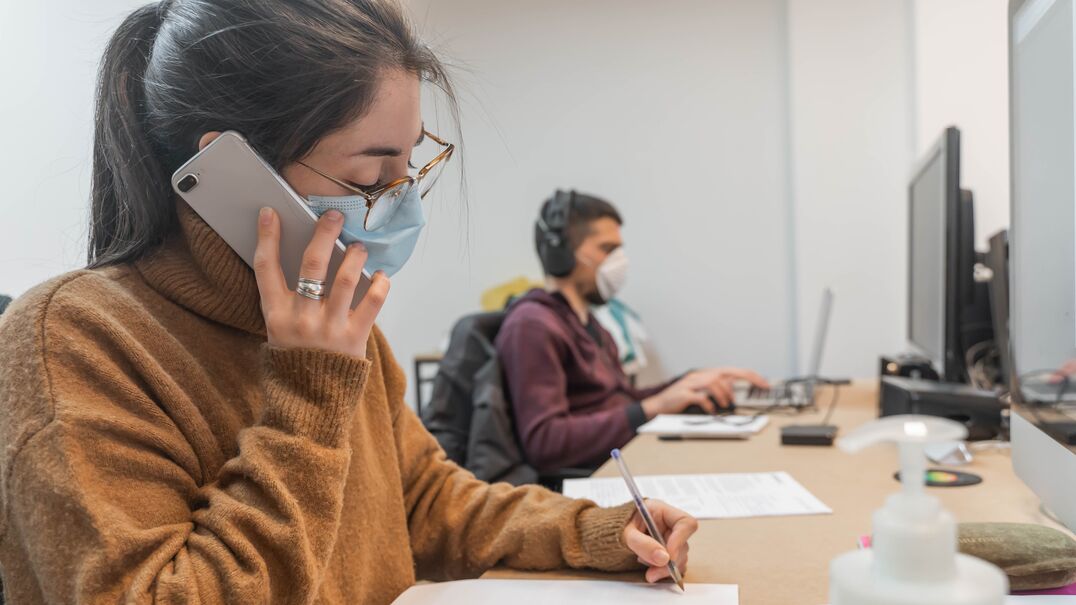Nic* was 14 years old when Berry Street first met them. Nic describes themself as non-binary and uses they/them pronouns.
They were referred after their mum, Janene, told a family
violence caseworker that Nic had smashed some things in the house and their increasingly regular verbal assaults had become physical a couple of times. Janene* was worried about both Nic and Nic’s two younger siblings. The caseworker made
a referral for Nic and Janene to The Wattle Project, a Berry Street therapeutic
service that supports families with young people who are using violence at
home.
Sixteen years earlier, when she was 19 years old, Janene
met Stefan* who was a few years older. Soon after, he started telling her what to
wear, controlling who she spoke to and where she went. Within months, Janene
was pregnant with Nic, and Stefan’s use of physical violence began. The
physical and sexual assaults led to Janene being taken to hospital in an
ambulance several times. With no access to money, no friends and totally
estranged from her family, Janene felt she had no options but to stay despite
police encouraging her to press charges. Stefan continued to use violence and to
demean and gaslight her. Janene coped as best she could despite the attacks. When
Nic was 8 years old, Stefan forced her to have another baby. His use of
violence escalated further. She tried to leave twice, but when faced with nowhere to live, she returned home. When Janene realised she was
pregnant with a third child, Stefan became convinced the baby wasn’t his. He
installed cameras around the house and blocked Janene’s access to the internet.
When Janene was giving the newborn a bath, Stefan tried to drown them
both. Neighbours again called the police. This time, Janene decided to
press charges. Stefan was charged and kept in custody while on remand. Nic was 13 years old. Police
referred Janene to The
Orange Door who started providing
her support.

Six months later, Janene told her caseworker that Nic had deliberately slammed her hand in the door. Since Stefan had been removed from their home, Nic’s name-calling and swearing at Janene had worsened. Nic had also thrown a mug at her while she was holding the baby, and another time had kicked their TV and smashed it. Janene said she would try and contain Nic and punish their outbursts, but Nic would only get angrier. She was worried about her little ones getting injured. She’d also seen some very violent images drawn by Nic that had scared her.
The caseworker made a referral to The Wattle Project. Given
the referral mentioned Nic’s drawings, the case was allocated to a clinician
who is trained in art therapy. She spoke with Janene and Nic separately and
immediately recognised that a violent and unpredictable home was the only one
Nic knew. They’d never felt safe and still didn’t, even though Stefan was in
gaol. Nic’s body and mind didn’t know what feeling safe felt like. Nic told the
clinician how upset they got with Janene, especially when she used the wrong
pronouns. Janene said she felt Nic had inherited Stefan’s volatile
temper. The
clinician knew that there were likely many contributing factors including that Nic
had witnessed Stefan’s anger and violence towards Janene, so was likely replicating
it.
Constrained by COVID restrictions, the clinician posted some coloured markers, pencils and an art journal for Nic to use during phone sessions. Janene was sceptical art therapy could help. The clinician spoke with Janene about how art therapy isn’t about creating artwork, it’s about creating a new narrative and understanding what’s happened.
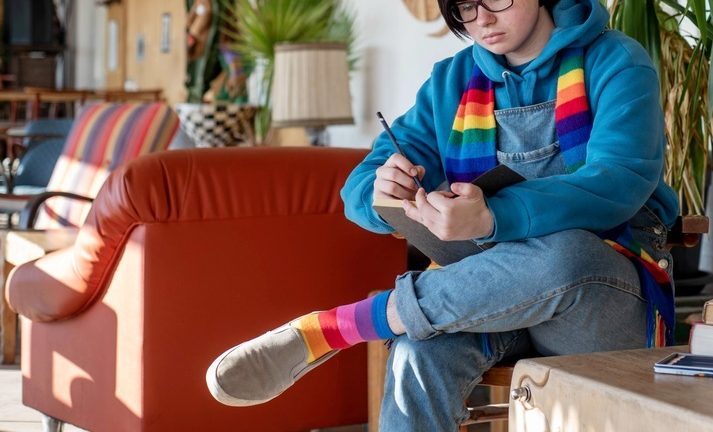
Despite some initial uncertainty about doing art therapy over the phone rather than in person, Nic became more comfortable and used the creative process to support expression and contemplation of the experiences they found difficult to put into words. They were soothed by the experience of art making. As these sessions occurred over the phone and the art making was not able to be seen by the clinician, the clinician used curious questioning to invite Nic to describe the work. This often led to deepened insights for Nic. While they talked, the clinician would also create artwork in response to their conversations. They often exchanged photographs of their art via SMS, extending their insights and connection in the therapeutic relationship. Nic came to describe the experience of art making as soothing, and something they used when stressed between sessions. After a few sessions, Nic shared that they’d started drawing a graphic novel. The single art journal has turned into multiple books and are something Nic feels very protective of.
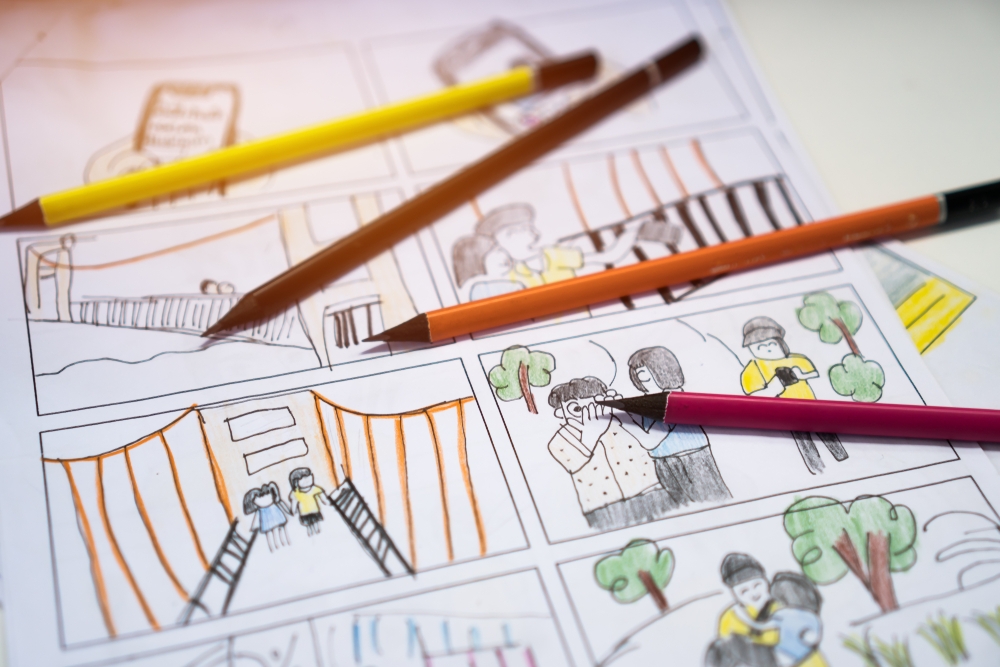
It was obvious to the clinician that Nic needed more secure and positive relationships in their life. The clinician knew that as an emerging adult Nic needed other supportive people in their life so they could explore what they want for their future. Nic and Janene’s relationship is complex and fraught, and Nic didn’t feel able or willing to talk to her about their gender and emerging sexuality. Nic’s clinician was able to connect them to a gender diverse support group for young people and found a free art-making session they could attend after school. While initially reluctant to attend as it was at a library, they’ve since gone a few times and met a couple of other people they like there, including the leader who also creates graphic novels and is encouraging Nic to continue with their artwork.
Nic revealed that part of why they weren’t attending school was that they found it hard to be their true self at school and felt excluded and disrespected, especially by teachers who used incorrect pronouns. With the clinician’s support, Nic has now started at a new school where people use their correct pronouns. As Nic has been more able to be themselves, they’ve been more able to connect with learning and peers. They’ve made a couple of new friends and have been going to school most days.
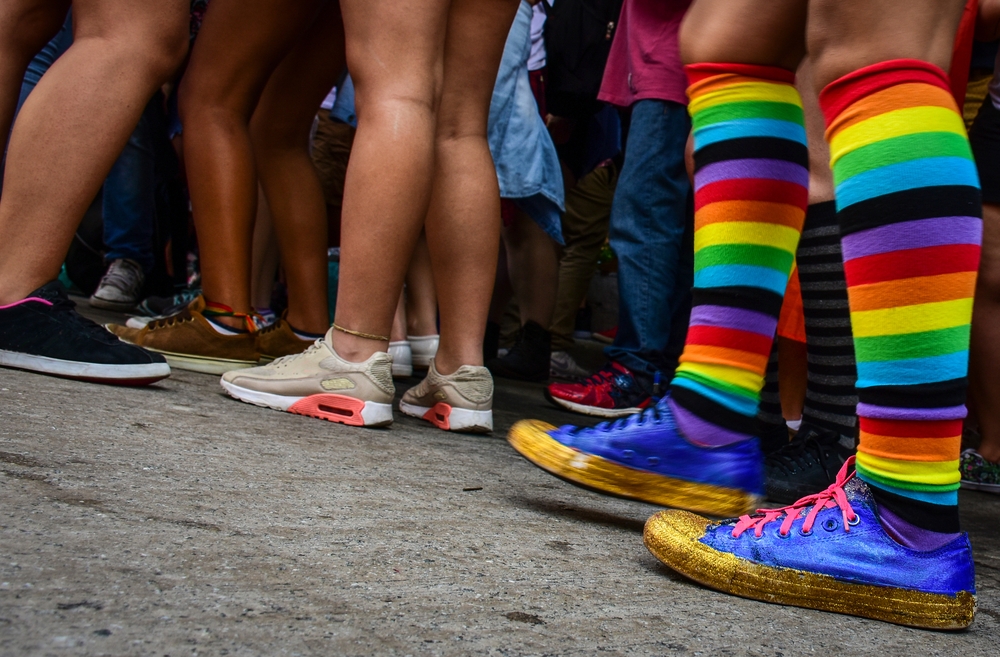
The clinician has also spent time supporting Janene to understand the importance to Nic’s wellbeing and self-identity of using their correct pronouns and accepting them as they are. By understanding Nic has post-traumatic stress disorder (PTSD) as a result of Stefan’s use of violence, Janene has been able to act with more empathy toward Nic as this is also her experience.
While Nic’s emotions and moods still fluctuate a lot, the
way they act when distressed is slowly changing. It’s been several months since
they’ve thrown anything at home or threatened Janene. There’s still been lots of
yelling, but both are learning to give each other space when they start feeling
overwhelmed. Nic is starting to appreciate that Janene doesn’t try to upset
them when she uses the wrong pronoun, she’s just learning to adapt.
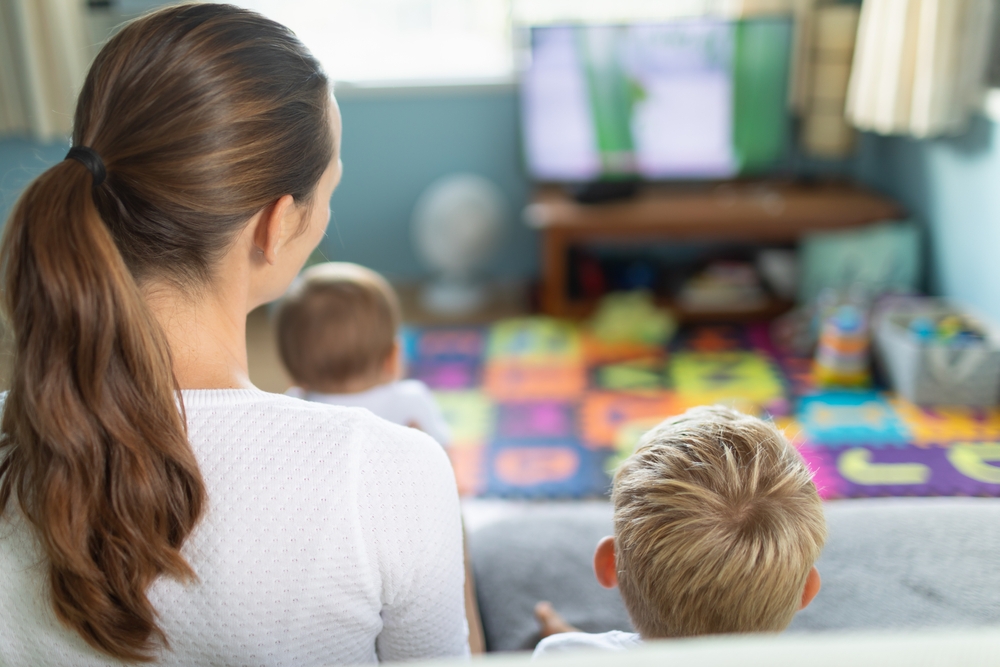
The clinician has worked with the caseworker to use some brokerage money provided as part of the program’s funding to replace the TV that Nic destroyed when they kicked it, so the family can watch TV together again. They’ve also supported Janene to get a computer for Nic to use for schoolwork. Janene has just re-joined Facebook and contacted her sisters. Nic is interested in meeting their cousins in the future, especially one who is a bit older and lives with his boyfriend.
The clinician and Nic are now able to do sessions in person and have built a positive therapeutic relationship in which Nic feels safe and respected. They’ve moved on in the therapeutic process and have started tackling some of Nic’s scariest childhood memories using Eye Movement Desensitisation and Reprocessing (EMDR). The clinician says that while those traumatic memories will still exist, once reprocessed using EMDR techniques, they will cause Nic less distress when recalled.
Things still aren’t great between Janene and Nic, but for the moment, they are living together. Stefan is still yet to be convicted, so things will still be up in the air for a while for the family, but they are coping, and the clinician is hopeful they can rebuild their relationship as time goes by.
*The names of the children and the families we work with have been changed, and models are used in our photographs to protect their identities.
Berry Street’s Take Two program is a therapeutic service helping to address the mental health impacts on children of the trauma they have experienced from abuse, neglect or adverse experiences. At Take Two we see who the child is, not just the behaviour.
We use clinical frameworks, neurobiological research and evidence-informed approaches to repair family relationships and develop networks of caring adults that focus on what the child needs.
Take Two can provide specialist clinical consultancy services, including training to other organisations. Contact us for more information.

